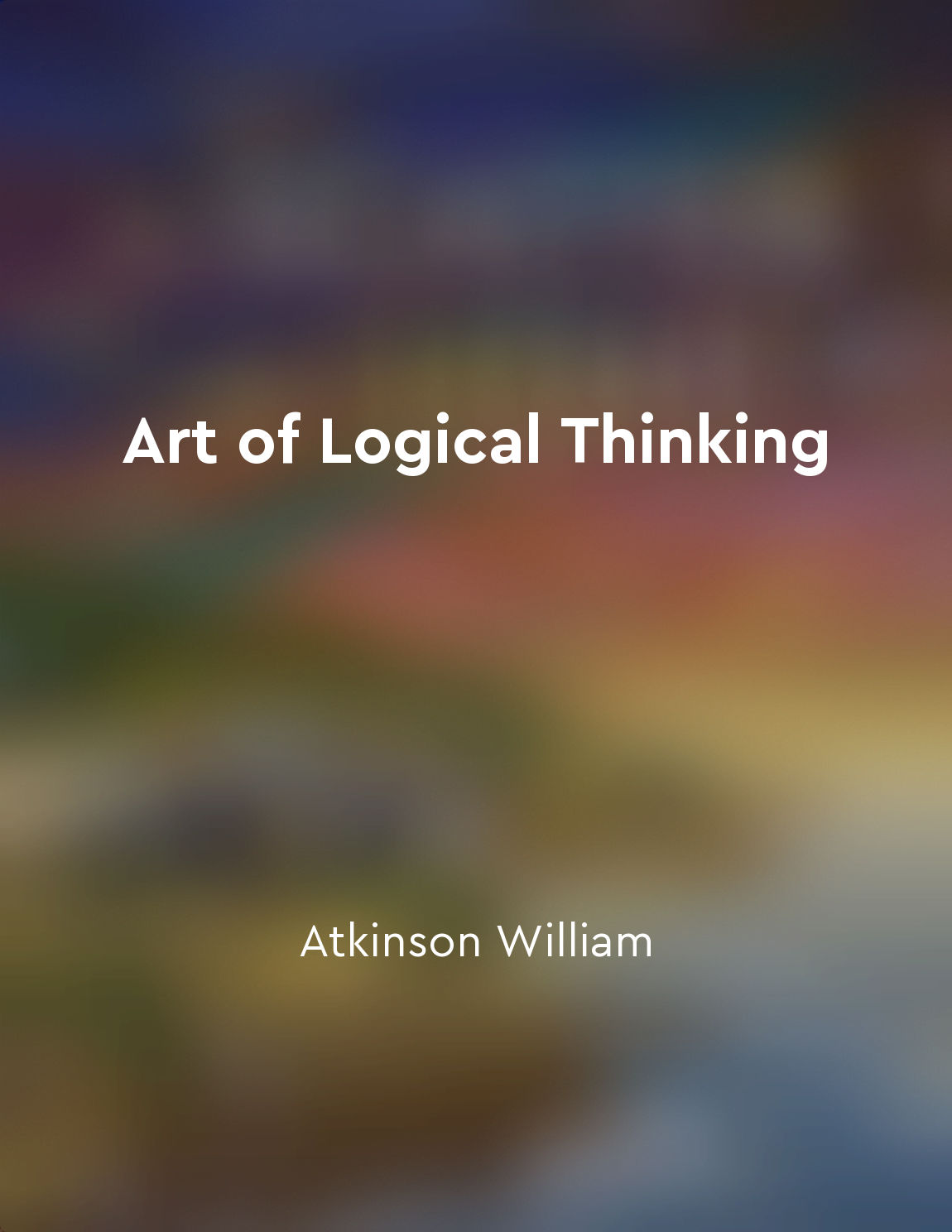Audio available in app
Analogical reasoning compares similarities from "summary" of Art of Logical Thinking by Atkinson William
Analogical reasoning is a method of comparing similarities between two things in order to draw a conclusion about one based on the characteristics of the other. It involves finding commonalities between two objects, events, or ideas, and using those similarities to make inferences or predictions. By identifying shared attributes or relationships between two entities, analogical reasoning allows us to transfer knowledge or understanding from one situation to another. When we engage in analogical reasoning, we are essentially using past experiences or knowledge to make sense of new or unfamiliar situations. By recognizing patterns or connections between seemingly unrelated concepts, we are able to apply what we already know to solve problems or make decisions in novel contexts. Analogical reasoning allows us to leverage our existing knowledge and skills to navigate new challenges or make informed choices. This method of reasoning is particularly useful when faced with complex or ambiguous situations where traditional logic may not provide a clear solution. By drawing on our ability to recognize patterns and relationships, we can make educated guesses or formulate hypotheses based on the similarities we observe. Analogical reasoning enables us to think creatively and make connections between disparate pieces of information, leading to innovative solutions or novel insights. In practice, analogical reasoning can be a powerful tool for problem-solving, decision-making, and creativity. By drawing parallels between different domains or disciplines, we can uncover new perspectives or approaches that may not be immediately obvious. Analogical reasoning encourages us to think outside the box and consider unconventional solutions, leading to breakthroughs or discoveries that may have been overlooked using traditional analytical methods.- Analogical reasoning is a valuable cognitive skill that allows us to leverage our existing knowledge and experiences to make sense of new or unfamiliar situations. By comparing similarities between different entities and drawing connections between seemingly unrelated concepts, we can gain new insights, solve complex problems, and make informed decisions. Analogical reasoning is a versatile tool that can be applied in a wide range of contexts, from scientific research to everyday problem-solving, making it an essential component of logical thinking.


